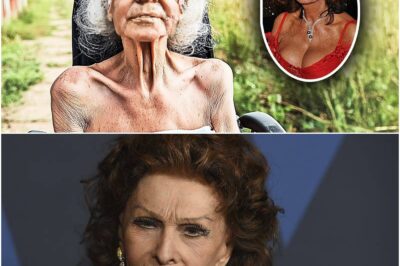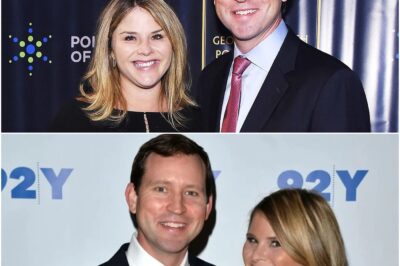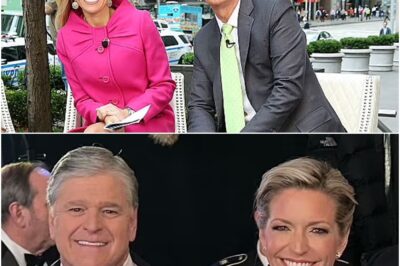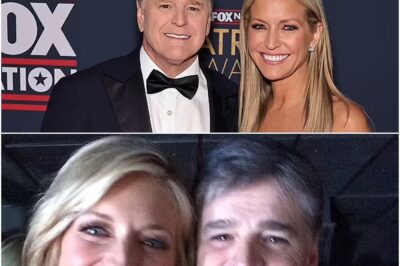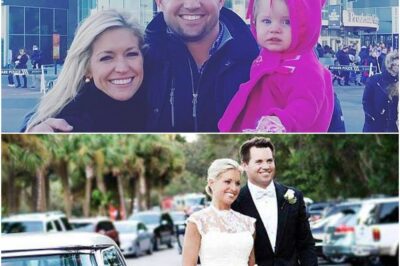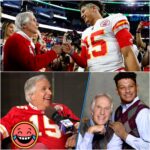Actor Gene Hackman has died alongside his wife, pianist Betsy Arakawa, and their dog at home, the Santa Fe County Sheriff’s Office in New Mexico said on Thursday.
A statement from a sheriff’s office spokesperson to USA TODAY said deputies had found the 95-year-old actor and Arakawa, 64, deceased in separate rooms on Wednesday afternoon, at around 1:45 p.m.
“Foul play is not suspected as a factor in those deaths,” the spokesperson said, though an exact cause has not been determined, and the sheriff’s office is investigating.
In a statement to USA TODAY on Thursday, Hackman’s daughters – Elizabeth and Leslie Hackman – and granddaughter Annie said they were “devastated by the loss.”
“It is with great sadness that we announce the passing of our father, Gene Hackman and his wife, Betsy,” they said. “He was loved and admired by millions around the world for his brilliant acting career, but to us he was always just Dad and Grandpa. We will miss him sorely.”
Remembering those we lost: Celebrity Deaths 2025
Deputies did not see signs of forced entry into the Sante Fe, New Mexico, residence, and the front door was open upon their arrival, according to a search warrant. The Santa Fe City Fire Department, working with the New Mexico Gas Co., did not find evidence of a carbon monoxide leak or poisoning.
Hackman and Arakawa were found in separate rooms. The actor was found in a mudroom near his cane, appearing to have fallen, while his wife was found in an open bathroom near a space heater, with an open prescription bottle and pills scattered on the nearby countertop, according to the warrant. A deputy observed “body decomposition, bloating in her face” and mummification in her hands and feet.
One of the couple’s German shepherds was also found dead less than 15 feet from Arakawa in a closet, while their other two dogs were found alive in the bathroom near Arakawa and outside.
Remembering award-winning actor Gene Hackman
An intense character actor who won two Oscars in a more than 60-year career, Hackman brought a rogue charm and everyman believability to iconic roles such as his best acting-winning performance as Jimmy “Popeye” Doyle in “The French Connection.
The multitalented actor and novelist Hackman infused humanity and his trademark laugh into even his villain roles, a particular specialty in his four-decade film career – from the gleeful megalomaniac Lex Luthor in the “Superman” franchise, his nuke-happy submarine commander in 1995’s “Crimson Tide,” his conniving secretary of defense in 1987’s “No Way Out,” a deadly corporate lawyer in “The Firm” his sleazy B-movie director in 1995’s “Get Shorty” and his loathsome sheriff in his Oscar-winning “Unforgiven” role.
“You play them in an honest fashion,” Hackman said on “Larry King Live” in 2004 when asked how he played such erratic characters. “You play them in a way that everything that you’re required to do is the absolute truth.”

The versatile craftsman brought unbowed sincerity to his role as a small-town Indiana basketball coach in the beloved 1986 drama “Hoosiers” as well as pure comedy to 2001’s “The Royal Tenenbaums” and an unforgettable cameo in Mel Brooks’ “Young Frankenstein.”
Then, after five Academy Award nominations and 80 films, Hackman simply stopped making movies after 2004’s “Welcome to Mooseport” and retired to Sante Fe, New Mexico. His legacy of honest portrayals has continued.
“Warren Beatty is a star. Robert Redford is a star. Brad Pitt. I never think of myself that way,” Hackman told King in 2004. “I never had the aspirations to be a star. I wanted to be an actor. A movie actor, a theater actor, that’s all I ever wanted to do.”

It’s a dream harbored from a difficult, peripatetic childhood for Hackman, born Jan. 30, 1930, to printing press operator Eugene Ezra and wife Anna Lyd, who divorced when he was 13. Hackman grew up with movies serving as his main source of escapist entertainment.
He left high school at 16, lying about his age to enlist in the Marines for four years, before eventually heading to Los Angeles to pursue acting. There were setbacks for the aspiring actor who lacked leading-man looks. Joining the Pasadena Playhouse with fellow newcomer Dustin Hoffman, the duo were voted “The Least Likely To Succeed” with the troupe.
Hackman eventually progressed with a role in 1964’s experimental film “Lilith,” which featured rising star Beatty.
“There’s a scene in ‘Lilith’ between me and Gene and Jessica Walter, and I thought that Gene was such a natural, honest, brilliant actor that he made me good in our scene together,” Beatty told EW in 20I6. “I remember thinking, I’m not going to do any other movies without him.”
Three years later, Beatty would enlist Hackman in the role of Clyde Barrow’s brother Buck in “Bonnie and Clyde,” a breakout role that earned him his first Oscar nomination for best supporting actor (the actors would also collaborate in Beatty’s 1981 drama “Reds.”).

Hackman was nominated for a second best supporting actor nomination for his role in the 1970’s “I Never Sang for My Father” before winning best actor for his performance as New York City Detective Jimmy “Popeye” Doyle in director William Friedkin’s landmark police drama “The French Connection” (1971) a role which propelled Hackman into leading man status. His Doyle role, which he reprised in 1975’s “French Connection II,” sits at 44 on the AFI top 100 “Heroes and Villains” list.
The leading roles followed, including the star-filled disaster film 1972’s “The Poseidon Adventure,” as the heroic but doomed Rev. Frank Scott, and Francis Ford Coppola‘s best picture nominated “The Conversation” (1974). That same year, Hackman appeared, in what would become one of his most famous comedic roles, as a blind priest in “Young Frankenstein,” a role he did for scale.

Self-described diabolical genius Lex Luthor marked Hackman’s heady plunge into villain roles in 1978’s “Superman: The Movie.” He continued the crazily coiffured through 1980’s “Superman II” and the critically reviled bomb 1987’s “Superman IV: The Quest for Peace.” The latter role is best remembered for Hackman dramatically removing Lex’s wig, revealing his baldness before being carted off to prison.
The actor refused to shave his head for the character, thus the wig removal showed a skull cap that covered his actual hair.

This villainous streak was most adroitly incorporated by director Clint Eastwood who cast Hackman as corrupted President Richmond in 1997’s “Absolute Power” and as the brutal sheriff “Little” Bill Daggett in 1992’s “Unforgiven.”
“Villains are always the best roles,” Hackman told The Washington Post in 1996. “It’s the best kind of acting. The things you get to do.”

But the ’80s were filled with earnest roles such as Coach Norman Dale in the sports classic “Hoosiers” and starring as the violently pragmatic FBI agent seeking the killers of three civil rights workers in 1988’s “Mississippi Burning,” for which he was nominated for an Academy Award. Between 1985 and 1988, Hackman starred in nine films, tying Steve Guttenberg as the busiest actor during that period.
There were quality roles in that span. Kevin Costner called Hackman “the best actor I ever worked with,” after the two starred together in 1987’s thriller “No Way Out.” But the mark also represented Hackman’s inability to turn down dubious projects.
“I suppose a lot of it comes from early days when there wasn’t any work,” Hackman told the Post. “You’re like a child that thinks he’ll never eat again.”

Hackman’s forays into off-brand comedy were always refreshing, including playing conservative Sen. Kevin Keeley in 1996’s “The Birdcage” with Robin Williams and Nathan Lane. His role as estranged patriarch Royal Tenenbaum in Wes Anderson’s 2001 comedy “The Royal Tenenbaums” earned critical praise and a Golden Globe best comedic actor win.
What was the last movie Gene Hackman made?
He gave no reasoning or fanfare with his decision to retire after making the critically and financially unsuccessful “Welcome to Mooseport” in 2004.
Why did Gene Hackman stop acting?
In a 2008 Reuters interview, Hackman confirmed he would not be returning to acting: “I haven’t held a press conference to announce retirement, but yes, I’m not going to act any longer. I’ve been told not to say that over the last few years, in case some real wonderful part comes up, but I really don’t want to do it any longer.”
He spent his years in Santa Fe with his second wife Arakawa. He enjoyed fishing and painting while continuing to write historical action novels. His third collaboration with Daniel Lenihan, “Escape From Andersonville: A Novel Of The Civil War,” came out in 2008.

Hackman explained the appeal of writing to Reuters. “I like the loneliness of it, actually. It’s similar in some ways to acting, but it’s more private and I feel like I have more control over what I’m trying to say and do,” he said. “I don’t know that I like it better than acting, it’s just different. I find it relaxing and comforting.”
Living outside Santa Fe, Hackman was married twice and had three children – Christopher, Elizabeth Jean and Leslie Anne – with his late ex-wife, Faye Maltese, whom he divorced in 1986 and who died in 2017. He married Arakawa in 1991.
Contributing: Taijuan Moorman, USA TODAY; Reuters
News
“From International Sex Symbol to Private Heartbreak—The Tragic Final Act of Sophia Loren’s Legendary Life Is Leaving Fans in Tears”
Sophia Loren at 90: The Tragic Reality Behind a Hollywood Legend’s Final Years Sophia Loren, one of the last true…
“Internet MELTS Over Jenna Bush Hager’s Gorgeous Husband and Adorable Kids—Viewers Say ‘This Is America’s First Family 2.0!’”
Try Not to Gasp When You See Jenna Bush Hager’s Husband & Kids Jenna Bush Hager may be a familiar…
“Ainsley Earhardt Sparks Outrage with Daring Fashion Choice Just Days After Confirming Engagement to Sean Hannity—Critics Say She’s ‘Too Flashy for Fox!’”
Ainsley Earhardt’s Fashion Sparks Controversy Amid Engagement to Sean Hannity Fox News host Ainsley Earhardt, the newly engaged fiancée of Sean Hannity,…
“Fox News Power Couple EXPOSED: Ainsley and Hannity’s Hidden Engagement Finally Revealed—Here’s How They’re Making It Work!”
Ainsley Earhardt Opens Up About Long-Distance Engagement with Sean Hannity – “We Make It Work” Fox News host Ainsley Earhardt and Sean Hannity shocked…
“From Anchor to Aftershock: Ainsley Earhardt’s World Turned Upside Down by Husband’s Alleged Affair—Fox News Star Faces Ultimate Personal and Public Humiliation!”
Fox News Star Ainsley Earhardt SPLITS from Husband Amid Shocking Infidelity Scandal with Her Close Friend! Fox News host Ainsley Earhardt has…
“Harris Faulkner’s Savage Takedown of Whoopi and Sunny Goes Viral After Explosive Ratings Victory!”
Harris Faulkner Slams The View Hosts After Her Shocking Ratings Win—What She Really Thinks of Whoopi Goldberg and Sunny Hostin…
End of content
No more pages to load




